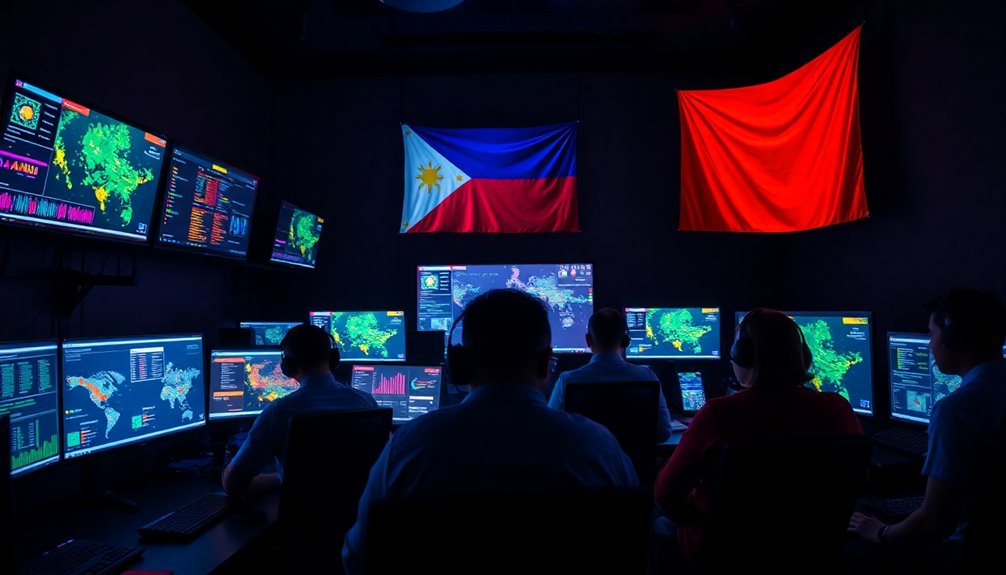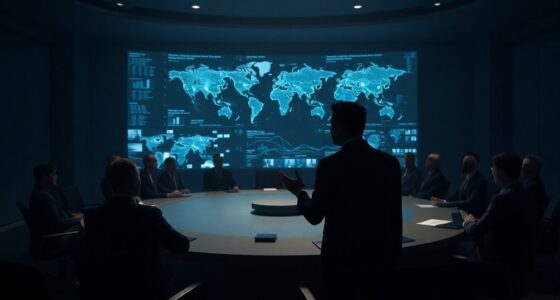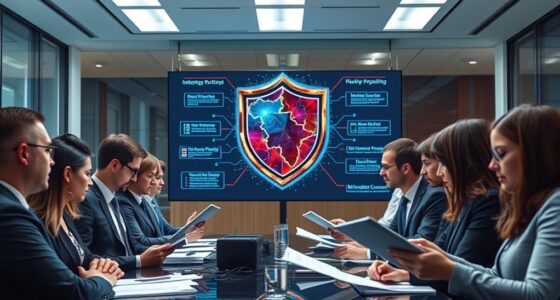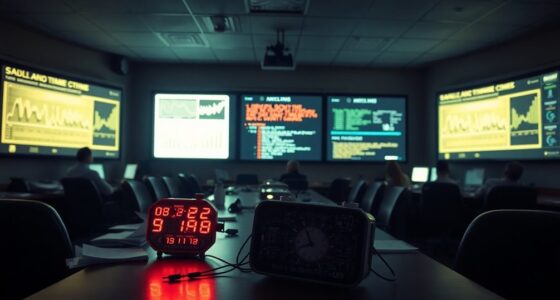
As the digital landscape rapidly evolves, the Philippines is taking significant strides to bolster its cybersecurity defenses. With the National Cybersecurity Plan (NCSP) 2023-2028, President Marcos has launched a flagship initiative aimed at enhancing cybersecurity across government agencies.
You'll notice that the Philippines recently climbed to 53rd in the 2024 United Nations Global Cybersecurity Index, scoring an impressive 93.49 points. This progress reflects the nation's commitment to aligning its cybersecurity policies with international standards, ensuring a robust framework to protect citizens and government. Midterm elections are approaching, making the need for a secure electoral process even more pressing.
Training and workforce development are also crucial in this initiative. The government is ramping up training programs to enhance the capabilities of its cybersecurity workforce. By focusing on proactive protection, the Philippines is taking necessary measures to secure not only government data but also the personal information of its citizens in cyberspace.
The rise of AI-driven attacks, ransomware threats, and supply chain vulnerabilities makes this focus more critical than ever.
The increasing prevalence of AI-driven attacks and ransomware underscores the urgent need for enhanced cybersecurity measures.
International cooperation plays a vital role in strengthening these defenses. The Philippines has partnered with the U.S. and Japan, participating in multinational military exercises like Balikatan to enhance collective cybersecurity.
Through involvement in initiatives like the International Counter Ransomware Initiative, it's joining forces with over 60 nations to combat the growing menace of ransomware. Establishing a cyber defense network with allies contributes to global stability and fortifies the nation's defenses.
As the upcoming elections approach, the government is prioritizing cybersecurity in electoral processes. New measures require candidates to disclose any AI manipulation in their campaign materials and mandate the registration of social media accounts for election purposes.
This proactive stance aims to combat the misuse of social media and disinformation, safeguarding the integrity of the electoral process.
However, challenges remain. A shortage of skilled cybersecurity professionals poses a significant hurdle. The government is also enhancing capabilities within entities like the Cybercrime Investigation and Coordination Center (CICC) and establishing the Armed Forces Cyber Command to bolster military cybersecurity.









